Mathematical Phenomenology: Synergies and Connections Workshop
This workshop aims to create bridges between research in Mathematical Phenomenology— understood broadly as a research programme that connects the formal tools of mathematics with the study of conscious experience—and other formal research programmes in Consciousness Science, especially those concerned with quality spaces, structuralism, and psychometrics.
On the one hand, the workshop seeks to explore synergies and common targets of investigation. This includes questions like: To what extent can methods or perspectives developed within one research programme inform another? Do research programmes address distinct aspects of a common phenomenon? How do their formal tools compare, and can they be integrated into a unified framework?
On the other hand, the workshop seeks to clarify differences between research programmes, concerning their underlying assumptions, explanatory goals, desiderata, and satisfaction conditions. This includes, in particular, mutual criticisms that have arisen, such as concerns about rigour, bias, or the adequacy of standard practices for capturing phenomenal character.
Ultimately, the workshop aspires to help foster a more synergistic research landscape in consciousness science, in which progress in one research area can be recognized, evaluated, and fruitfully employed in another.
Date & Time
Date: November 24 & November 26, 2025
Time: 9:00 – 23:30 CET
Location: BAMΞ, University of Bamberg, Bamberg & Online, Zoom
This workshop is part of BAMΞ's Mathematical Phenomenology Sprint.
Invited Speakers
We are currently in the process of scheduling talks, please find a preliminary list of confirmed invited speakers below.
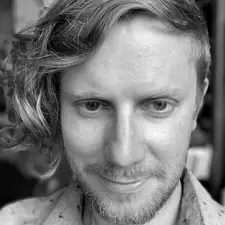
Geoffrey Lee
Prof. Dr.
Department of Philosophy, University of California, Berkeley
Phenomenal Magnitudes and Phenomenal Measurement: Towards a Moderate Realism
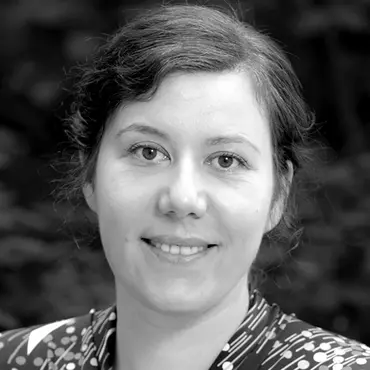
Larissa Albantakis
Prof. Dr.
Department of Psychiatry, School of Medicine and Public Health, University of Wisconsin–Madison
Your Experience is a Causal Structure

Wanja Wiese
Dr.
Institute for Philosophy II, Ruhr University Bochum
Impossible Conscious Experiences
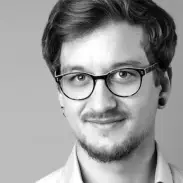
Lukas Kob
Dr.
Institute of Philosophy, Czech Academy of Sciences
Substrate-Hybrid Systems in the Context of Artificial Consciousness

Nao Tsuchiya
Prof. Dr.
School of Psychological Sciences, Monash University
The Qualia Structure Paradigm: Towards a Construction of a Qualia Periodic Table for the Dissolution of the Hard Problem of Consciousness
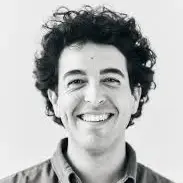
Nicolás Hinrichs
Dr.
Embodied Cognition Science Unit, Okinawa Institute of Science and Technology (OIST) & Cognition and Plasticity Research Group, Max Planck Institute for Human Cognitive and Brain Sciences
Geometric Neurophenomenology
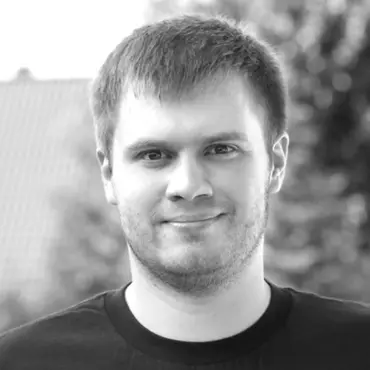
Tim Ludwig
Dr.
Philosophy of Technology, Karlsruhe Institute of Technology
Models, Concepts, and Real Systems: From Physics to Consciousness Science
Registration
If you would like to participate in this workshop, please apply via the form linked below. Please note that in order to facilitate good discussion sessions, spaces are limited. We are looking forward to welcoming you!
Schedule
We are happy to share the workshop schedule below. Zoom access details have been sent to all workshop participants via email. To convert any listed time to your local time zone, please click on the globe symbol 🌍 next to the individual talks. We look forward to seeing you!
Monday, 24 November
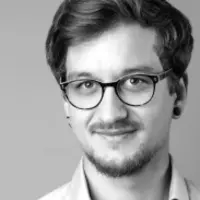
16:00 – 17:30 CET 🌍
Substrate-Hybrid Systems in the Context of Artificial Consciousness
Lukas Kob
- The debate between computational functionalism and biological naturalism overlooks an important possibility: substrate-hybrid systems. These coupled systems consist of one silicon-based part and one biology-based part. Recent advances in brain organoid research support the feasibility of creating these systems. In this talk, I will discuss the implications of potential substrate-hybrid systems for conscious artificial intelligence, particularly from the perspective of biological naturalism. I will argue that the prospect of consciousness in these systems hinges on the theories of consciousness considered and align these theories with two specific hybrid-system scenarios. In a scenario in which organoids control silicon-based computations, I will conclude that cognitive theories of consciousness are consistent with the emergence of consciousness in these systems. Conversely, hybrid systems that simply outsource computations from silicon to biological computers will only be conscious based on local sensory theories of consciousness. Thus, considering substrate-hybrids helps us not only estimate their technical feasibility, but also improve our understanding of the relationship between consciousness and its substrate.
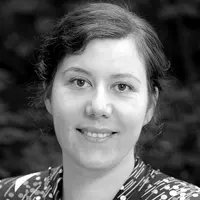
18:30 – 20:00 CET 🌍
Your Experience is a Causal Structure
Larissa Albantakis
- Integrated information theory (IIT) starts by identifying the essential properties of experience and aims to provide a theoretical framework to account for these essential properties in physical terms. One of these essential properties is that experience has phenomenal structure. IIT proposes that the phenomenal structure of every experience—its quality—can be accounted for in full by the cause–effect structure specified by the substrate of consciousness in its current state—that “all quality is structure.” I will outline how IIT operationalizes phenomenal structure as cause-effect structure, and how it proposes to account for contents of experience that are at least partially introspectable, namely spatial extendedness, temporal flow, and the experience of objects. I will also discuss how the proposed identity between phenomenal and causal structure can be validated empirically and how IIT’s notion of intrinsic cause-effect structure differs from extrinsic notions of structure in consciousness science, mathematics, and philosophy.
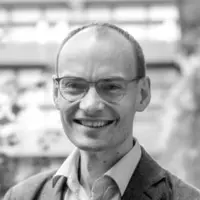
20:30 – 22:00 CET 🌍
Impossible Conscious Experiences
Wanja Wiese
- Are there (logically possible) conscious experiences that no existing human being could have? In one sense, this may be trivial, if we consider how our perceptual experiences are limited by our sensory organs. But there may be non-trivial types of impossible conscious experience. For instance, if there are causal dependencies between the neural mechanisms required to instantiate distinct phenomenal properties (in human beings), then instantiating one of these phenomenal properties without certain others may be impossible. Investigating such ‘impossibilities’ may be facilitated by mathematical models. This talk clarifies the idea of impossible conscious experiences and outlines a general methodology for its investigation.
Wednesday, 26 November

09:00 – 10:30 CET 🌍
The Qualia Structure Paradigm: Towards a Construction of a Qualia Periodic Table for the Dissolution of the Hard Problem of Consciousness
Nao Tsuchiya
- The nature of the relationships between qualitative aspects of consciousness, or qualia, and their physical substrates remains unclear. The problem of qualia is one of the biggest challenges among the enigmas of consciousness. One difficulty in qualia research is characterization of qualia. Verbal descriptions and simple behavioral responses are unable to capture the richness of qualia, the dilemma faced by the traditional NCC paradigm. Comparing a quale with another quale, however, is not difficult. Such relational characterization of qualia, but now in a structural context, underlies the core of the Qualia Structure paradigm. This new paradigm was inspired by category theory, in particular, the Yoneda lemma, which states that an object in a category is characterized by its relationships to all objects in that category. Inspired by the lemma, the Qualia Structure paradigm proposes a pathway to characterize and organize the structural properties of different qualia type one by one. As a result, it aspires to reach an organizing principle, akin to a Mendeleevian periodic table, for the domains of qualia and their physical substrates. Under this framework, any valid theories of consciousness should link the two domains in a structure-preserving manner. This level of specification and understanding of relations between qualia and the physical would dissolve the Hard Problem of consciousness in its current form.
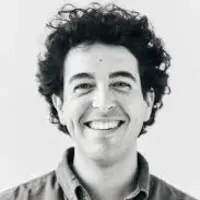
18:30 – 20:00 CET 🌍
Geometric Neurophenomenology
Nicolás Hinrichs
- Much of consciousness science has focused on single brains and isolated tasks. This talk instead targets joint action, that is, situations in which agents coordinate their behaviour and experience a distinctive sense of “we‑ness”. I sketch a framework for a geometric neurophenomenology of joint action that links first‑person structure, dual‑brain dynamics, and formal modelling. Empirically, I combine hyperscanning (i.e., simultaneous recording of neurophysiological signals) of interacting dyads with micro‑phenomenological interviews and fine‑grained behavioural annotation. Theoretically, I model the dyad as a coupled generative system with latent interaction states (e.g. smooth coordination, rupture, repair) that jointly generate inter‑brain activity, observable behaviour, and structured reports. To characterise the evolving interaction, I apply tools from discrete network geometry, in particular Forman–Ricci curvature on inter‑brain graphs and the entropy of its distribution as an order parameter for coordination regimes and phase‑transition‑like changes in network structure. I outline how these geometric markers can be aligned with transitions in lived experience (e.g., mis- and re-attunement) within an active‑inference‑inspired generative framework. I close by indicating how this approach scales from dyads to small groups and human–AI constellations, and how curvature thresholds may serve as geometric signatures of joint agency. The broader aim is to contribute to a mathematically explicit language for relating interaction geometry and phenomenological structure.
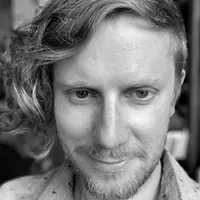
20:30 – 22:00 CET 🌍
Phenomenal Magnitudes and Phenomenal Measurement: Towards a Moderate Realism
Geoffrey Lee
- In this talk I will defend the view that the phenomenal character of experience involves phenomenal magnitudes, and that these magnitudes can in principle be measured by us. Phenomenal magnitudes are features of experience itself that have magnitude structure and are part of the felt character of the experience. Possible examples might be the feeling of experiencing brightness or experiencing loudness. I will discuss and attempt to resolve a number of foundational problems with this view, defending a moderate realism. On the moderate realist view these magnitudes do indeed exist and are accessible to measurement procedures, but at the same time, assuming that physicalism is true and they are implemented in a biological neural network, the facts about them are probably less determinate than we might naively have expected. The indeterminacy here is a little surprising, but easier to swallow once we see that phenomenal magnitudes are no worse off than other macroscopic non-fundamental magnitudes in this respect.
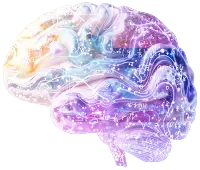
Cancelled or Postponed Talks
We regret to have to inform you that the following talks have been canceled due to personal reasons. We apologize for any inconvenience this may cause and look forward to welcoming the speakers on a future occasion.
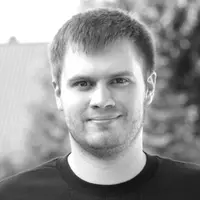
We regret to have to inform you that this talk had to be canceled due to personal reasons.
Models, Concepts, and Real Systems: From Physics to Consciousness Science
Tim Ludwig
- A key goal of mathematical consciousness science is to employ mathematical methods to support consciousness science. However, as empirical consciousness science is still a young field, there seems to be no established role for mathematics yet. To gain some insight into the role mathematics can play in an empirical science, in this talk, we will first discuss the role of mathematics in physics. In particular, we will focus on the relation between models, concepts, and real systems. In a second step, we will transfer the insights gained from physics to consciousness science. This will allow us to understand more easily two earlier results; namely, what could be meant with a "mathematical structure of conscious experience," and how there can be a “no-go theorem for consciousness on a chip.”
Organizers
Organizing Institutions
BAMΞ
University of Toronto, Department of Philosophy
Contact
In case of questions, please reach out.
Updates
Updates about this workshop and similar activities are available via:
- Our mailing list, register here.
- Our Google calendar, available here.